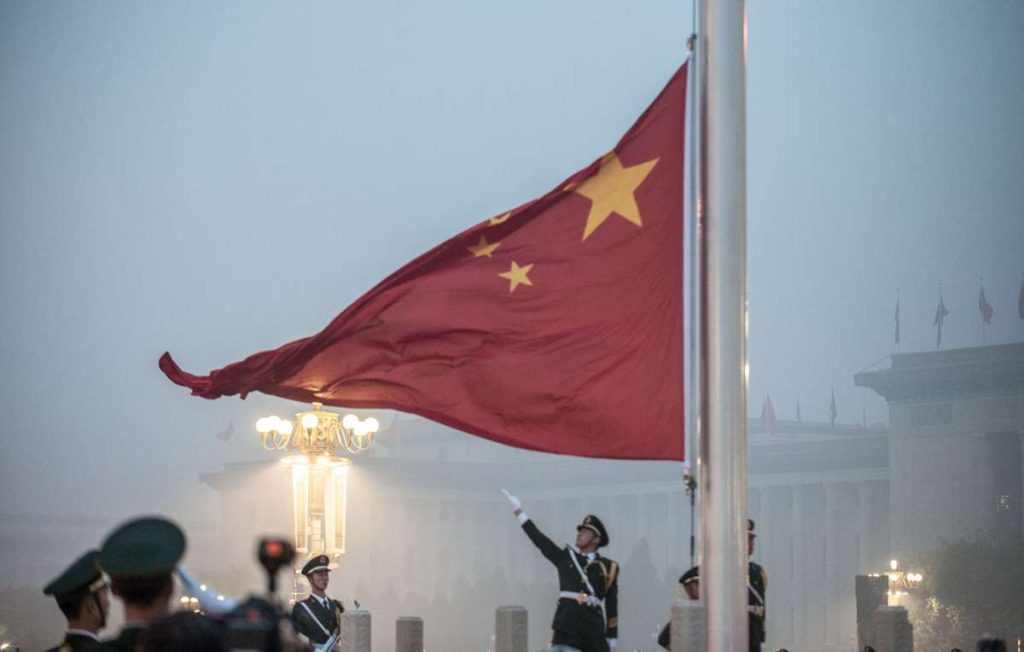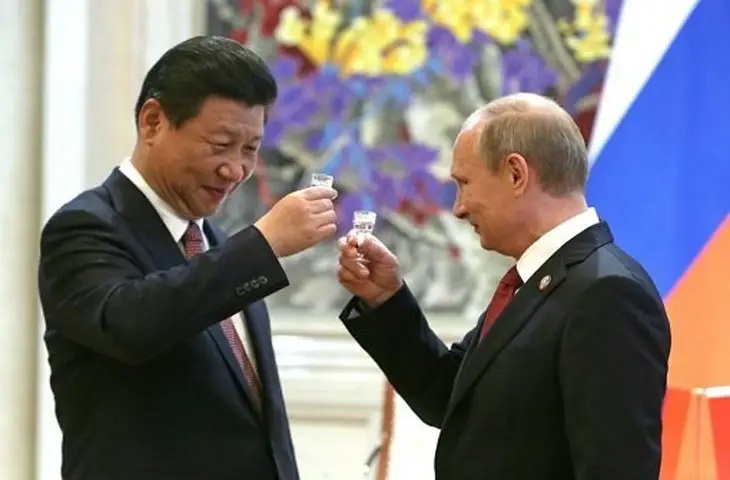Sunak said that “the pace of the geopolitical change and the extent of its impact on the UK and our people” could not have been foreseen even as recently as 2021, when the last review was published…reports Asian Lite News
The United Kingdom views China as representing an “epoch-defining challenge” to the world order and sees the UK and Europe’s security tied to Russia’s unsuccessful prosecution of its war on Ukraine, an update to the UK’s strategic foreign and defence policy blueprint states.
In a “refresh” to the Integrated Review (IR) policy paper, the UK highlights the challenges posed by China and its deepening partnership with Russia, as well as Moscow’s growing cooperation with Iran. The 63-page report unveiled on Monday toughens the UK’s language and positioning towards Beijing and Moscow and stresses the systematic and existential threat that both countries pose to the UK, Europe, and the wider rules-based world order.
While the review for 2021 had already identified Russia as the “most acute threat to the UK’s security”, the latest review notes that the collective security of the UK and Europe is now bound up with the outcome of Moscow’s war on Ukraine and “denying Russia any strategic benefit from its invasion”.
“Russia’s illegal invasion of Ukraine, weaponisation of energy and food supplies and irresponsible nuclear rhetoric, combined with China’s more aggressive stance in the South China Sea and the Taiwan Strait, are threatening to create a world defined by danger, disorder and division,” UK Prime Minister Richi Sunak wrote in the foreword to the review.
Sunak said that “the pace of the geopolitical change and the extent of its impact on the UK and our people” could not have been foreseen even as recently as 2021, when the last review was published.
The review notes that the UK’s provision of 2.3 billion pounds ($2.8bn) in military and humanitarian aid to Kyiv, as well as hundreds of targeted sanctions in coordination with allies, had “already weakened the Russian war machine … and set in motion international justice for Moscow’s egregious war crimes”.
“The UK’s objective will be to contain and challenge Russia’s ability and intent to disrupt the security of the UK, the Euro-Atlantic and the wider international order,” the review states.
Warnings about the threats posed by China were equally stark.
“China under the Chinese Communist Party (CCP) poses an epoch-defining and systemic challenge with implications for almost every area of government policy and the everyday lives of British people,” the review states.
Troubling for the UK is that Beijing has chosen to continue to strengthen its relationship with Russia despite Moscow’s aggression towards Ukraine, and that Beijing also continues to ignore international commitments on human rights in Hong Kong, Xinjiang and Tibet.
China’s “new multilateralism” was also posing a challenge to the protection of human rights and guarantees of freedoms under the United Nations system, as Beijing also engaged in “rapid and opaque military modernisation”, and maintained its position that force could be used to unite Taiwan with mainland China.
Unlike with Moscow, there was hope for relations with Beijing as the “UK does not accept that China’s relationship with the UK or its impact on the international system are set on a predetermined course”, the review adds.
“But we believe that this will depend on the choices China makes, and will be made harder if trends towards greater authoritarianism and assertiveness overseas continue.”

Increased defence and national security spending is required by the UK now and in the future, the review states and includes plans to spend an extra 5 billion pounds ($6bn) on defence over the next two years, primarily focused on nuclear resilience and replenishing depleted ammunition stocks. The review also restates an ambition to dedicate 2.5 percent of the UK’s annual gross domestic product (GDP) spending to defence, up on the current 2.2 percent.
The decision to not describe China as a threat to the UK in the review will likely disappoint many in Sunak’s Conservative Party, the Reuters news agency reported, adding that party members believe that his pledge to spend an extra 5 billion pounds ($6bn) on defence is insufficient to support Ukraine and sufficiently protect the UK.
ALSO READ-Russia agrees to 60-day Black Sea Grain Initiative extension

